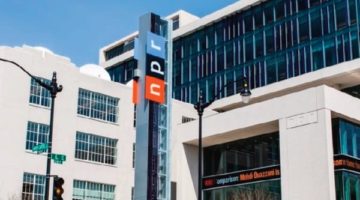 Special to South Florida Times
Special to South Florida TimesThe fatal police shooting of a black male a week ago continues to spark outrage in Miami’s African-American community, heightening calls to rein in the police and producing dire warnings that Liberty City is sitting on a powder keg waiting to explode.
Some residents would “love to see us go back to the dark days of riots in the streets but we can’t afford to do that,” said Bishop Victor Curry, president of the Miami-Dade NAACP. “But if we don’t do something immediately to stem the tide, we will be back there. We can’t afford to do that… We are sitting on a powder keg.”
The Rev. Anthony Tate, president of People United to Lead the Struggle for Equality, said his group is asking Miami Mayor Tomas Regalado, City Manager Tony E. Crapp Jr., and Police Chief Miguel Exposito to review police policies and procedures and dismantle a police task-force which is “going around wreaking havoc in our communities.”
“Some individuals are patrolling as predators. I call it a death squad. Immediate action needs to be taken on this problem,” Tate said.
If it were any other community, Tate said, “the task force, the chief, would have already have [sic] been removed.”
Brian Dennis, executive director of Brothers of the Same Mind, said over the past several weeks he and other members of the NAACP have been meeting with Regalado, Crapp and Exposito to figure out what needs to be done.
“They too are concerned about the powder keg exploding,” Dennis said.
Dennis described the meetings with the city officials as “very tight-lipped,” adding, “Tensions do rise but we cannot expose everything that is said,” he added.
John De Leon, president of the American Civil Liberties Union of Greater Miami, described the shootings as “carnage on the streets at the hands of Miami police officers.”
“We are not jumping to conclusions but are calling for the [Civilian Investigative Panel] to investigate the actions of the police department,” De Leon said.
The strong remarks came at a press conference called by the NAACP and the ACLU Tuesday at the studios of WMBM 1490 AM radio station at 13230 NW Seventh Ave., North Miami.
The shootings were also denounced at a candlelight vigil held Tuesday night at Northwest 22nd Street and Second Avenue in Overtown. City Commissioner Richard Dunn, who has been demanding that Esposito be fired, addressed the gathering.
According to reports, McNeil, 28, and his cousin Kareem Williams, 30, had just left a Little Haiti bar when police pulled them over at the corner of North Miami Avenue and Northwest 75th Street. What happened afterwards is still unclear, but reports said Miami Police Detective Reinaldo Goyo opened fire, killing McNeil and critically wounding Williams.
McNeil’s mother, Sheila McNeil, tearfully said at the press conference that her son had been afraid of the police.
“He knew that if he was ever pulled over to not make any sudden movements, to keep his hands on the steering wheel, to follow all directions given by the officers,” McNeil said. “So I don’t understand why my son is dead.”
His brother, Ronique Robinson, is also mystified. “I never thought my little brother would be killed by police officers,” Robinson said. “I respect the police. I figure you do what’s right and they will protect you. My little brother did not deserve to be murdered.”
Robinson said that his family wants answers. “No one has told us anything,” he said. “It’s senseless and it’s sad. We are consistently being told ‘it’s under investigation.’”
Robinson said after the shooting two Miami police detectives “gave us a card and a couple of words and told us they would let us know when we could come and identify the body. They have been really insensitive and no family deserves that.”
Patricia Rice, a cousin of Travis McNeil’s, said in an interview that the family was not allowed to identify the body for three days and was merely shown a photo.
Pearline Riceman, another cousin, said police did not notify McNeil’s mother that her son had been shot and killed. “She found out when she went to the hospital to see about Kareem. She didn’t even know Travis was there,” Riceman said.
Police, she said, notified the wrong person: “A lady at our church has the same name as Sheila. [Police] called her job and left a message that her son had been shot and killed. No one ever apologized for that really bad mistake.”
The day after Travis’ death, McNeil said, police officers went to her home and forced all of her family at gunpoint to lie face down on the concrete.
“We were making funeral arrangements,” Ronique Robinson said. “The police threw all of us to the ground and put assault rifles and pistols in our faces. They then said they had the wrong address for a drug bust.”
The family members, McNeil said, “were just there to grieve with us. That was just another humiliating moment in my life. They killed my child and now they want to humiliate me. It’s too much.”
Others speaking at the press conference included Bradford Brown, chairman of the NAACP branch and Howard Simon, president of the ACLU of Florida.
Simon said that the problem was not the African-American community but management of the police department. Under the administration of former Police Chief John Timoney, 22 months went by without the discharge of a weapon, he said, adding, “And now we have seven deaths.”
Brown said police killings in Miami are at a rate 20 times greater than in New York City.
And if Miami can outdo New York City, Curry said, “something is wrong. The policy of the police department has not changed; the mindset has.”
Cynthia Roby may be reached at CynthiaRoby@bellsouth.net.












No Comment